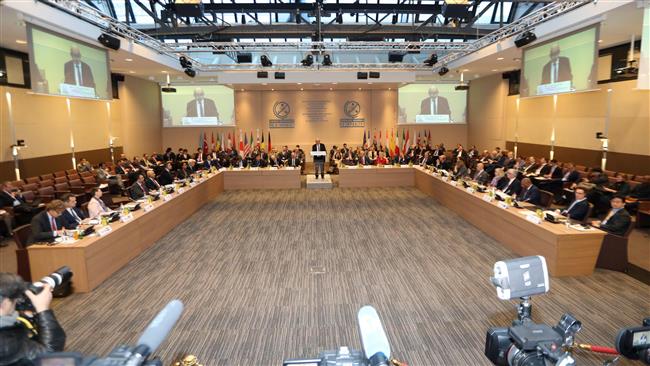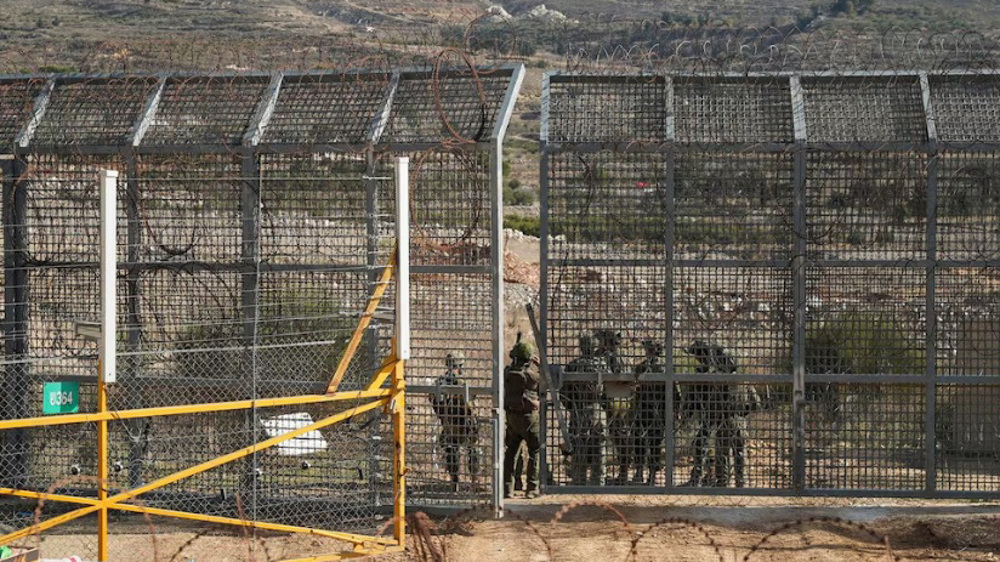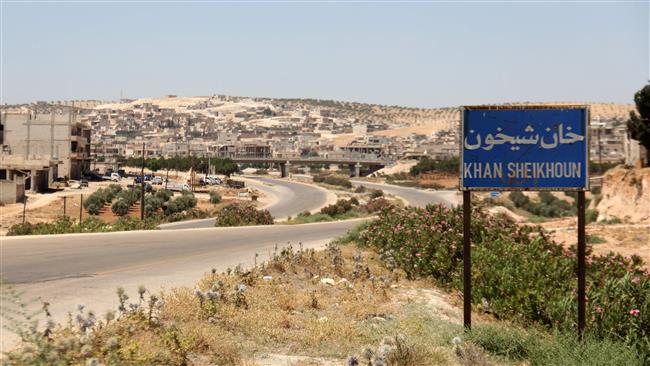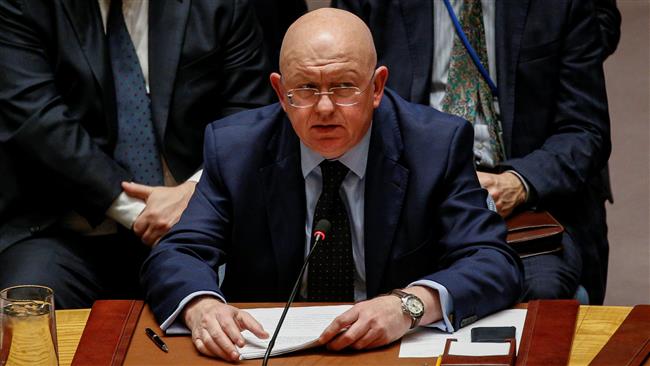Syria, Russia dismiss US chemical attack claims
Syria and Russia have rejected claims by the US and France that the Syrian government has used chemical weapons, saying such accusations are merely meant to hinder efforts to find a peaceful solution to the conflict in the Arab state.
US Secretary of State Rex Tillerson and France’s Foreign Minister Jean-Yves Le Drian made the allegations on Tuesday in Paris, where Washington and 28 of its allies had gathered to decide sanctioning the perpetrators of the purported attacks.
Tillerson said Russia “ultimately bears responsibility" for such strikes because it “shields its Syrian ally,” while Le Drian stated, “The criminals who take the responsibility for using and developing these barbaric weapons must know that they will not go unpunished.”
In a statement carried by Syria’s official SANA news agency, Damascus dismissed the allegations as “lies,” which are aimed at “obstructing any effort towards finding a way out of the crisis in Syria.”
The government surrendered its stockpiles of chemical weapons in 2014 to a joint mission led by the UN and the Organization for the Prohibition of Chemical Weapons (OPCW), which oversaw the destruction of the weaponry.

Meanwhile, Russian Deputy Foreign Minister Sergei Ryabkov said in an interview with Interfax news agency on Wednesday that the US was promoting “rigged, unverified reports” of the alleged use of chemical weapons in Syria to throw a wrench in Moscow’s peace efforts.
President Vladimir Putin’s spokesman Dmitry Peskov also slammed Washington for trying to complicate international efforts to probe the use of chemical weapons in Syria, rejecting accusations that Moscow was responsible for the recent attacks.
“We categorically disagree with the approach of the Americans who have essentially muddied the real investigation of previous instances” of Syria chemical attacks,” Peskov added.
Russia started lending aerial support to the Syrian counter-terrorism operations. In late 2016, it joined efforts with Iran and Turkey to establish a ceasefire in the city of Aleppo and then the entire Syria.
The trio then began mediating a peace process in the Kazakh capital of Astana between the Syrian government and the opposition.
The ongoing process has led to the creation of four deescalation zones in Syria and thus a sharp drop in violence there.
VIDEO | Iran-Syria: For Resistance
Qassam Brigades claims killing 3 Israeli troops in northern Gaza
More alive than ever: Sayyed Hassan Nasrallah's legacy grows stronger in martyrdom
Occupation of Syria’s highest peak Mount Hermon part of ‘Greater Israel’ project
Iran: Syrian people will decide their future without foreign interference
IRGC says Iran’s power exceeds borders, warns enemies to adjust themselves
Dozens detained, several wounded in Israeli raids in West Bank
‘Ethnic cleansing’: Hamas blasts Israeli attacks on Gaza hospital amid intl. silence













 This makes it easy to access the Press TV website
This makes it easy to access the Press TV website